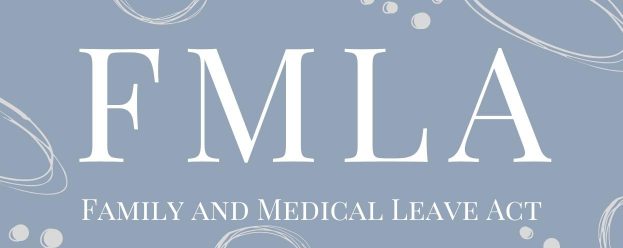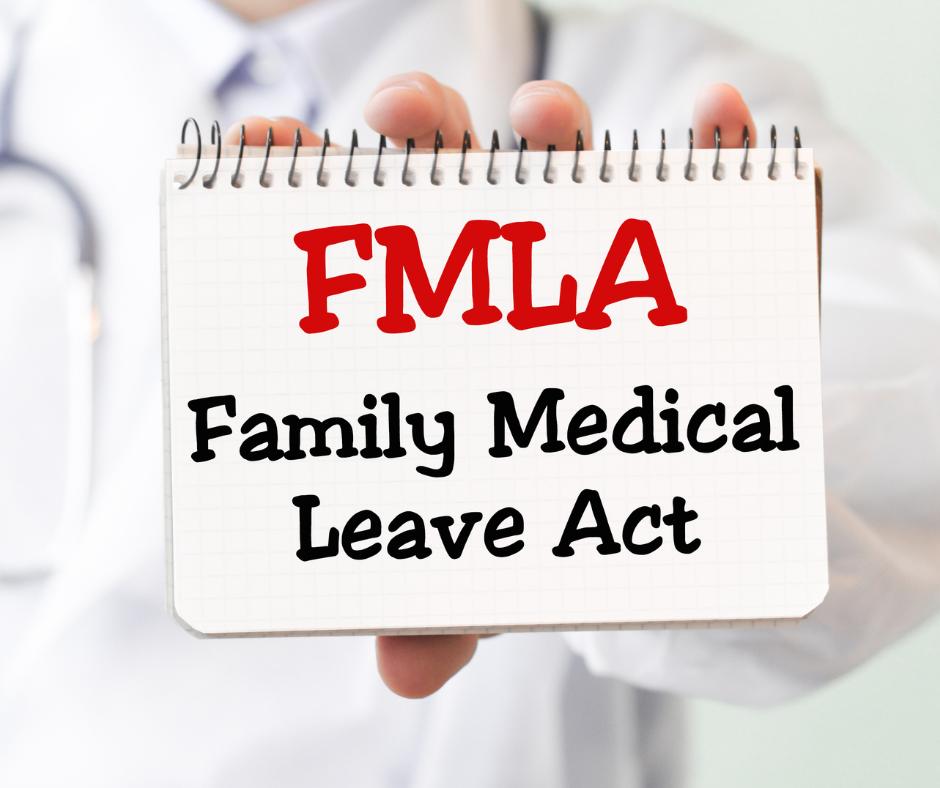7th Jan 2022

Estimated reading time: 6 minutes
As a business owner, it is important to understand the FMLA. Employers should know if they are required to offer it, who qualifies for it, the valid reasons an employee should be granted FMLA leave, and how to limit FMLA abuse by employees.
What is FMLA?
FMLA stands for the Family and Medical Leave Act. It is a federal labor law, generally applicable to employers with 50 or more employees, that allows eligible employees to take up to 12 weeks of unpaid leave a year for qualified family or medical related reasons. An employer is required to continue the employee’s group health benefits during this time. The employer is also required to restore the employee to their same position, or a similar position with the same salary and benefits as before, when they return to work.
FMLA allows for 26 weeks of unpaid leave in a 12-month period for eligible employees to care for a family member in the military who has a serious injury or illness. This includes service members in the Armed Forces, Reserves, or the National Guard. Eligible employees are also allowed to take FMLA for deployment related affairs.
Who qualifies for FMLA?

In order to qualify for this job-protected leave, employees have to have worked for their employer for at least 12 months (it does not have to be consecutive) and they also have to have worked at least 1,250 hours in the last 12 months. FMLA applies to private companies with at least 50 employees within 75 miles and it applies to all governmental agencies and schools, regardless of the number of employees.
What are valid family or medical related reasons an employer must allow an employee to take FMLA leave?
*The birth of a child and to care for the child within the first year.
*The placement of an adopted child or fostered child with the employee to care for them within the first year.
*If the employee has a “serious medical condition” and is unable to perform their essential job duties because of it.
*To care for an immediate family member that has a “serious health condition.” Immediate family member means spouse, child, or parent of the employee. It does not include the employees in laws or grandparents. Child can include someone in an “in loco parentis” relationship with the employee.
*For qualifying needs due to the employee’s spouse, child, or parent being on active duty as a Member of the National Guard, the Reserves, or the regular Armed Forces.
What is considered a “serious health condition” that would allow for an employee to take FMLA leave?
This can be a complicated analysis but generally it is an illness, injury, impairment, or physical or mental condition that involves:
*Inpatient care-e.g., if the employee or the employee’s spouse, child, or parent has a condition that requires overnight hospital stays.
*An illness or injury that leaves the employee incapacitated for more than 3 days. FMLA also covers the treatment required for the illness or injury.
How to limit FMLA abuse from employees
There are a number of policies that employers should put in place in order to prevent FMLA leave abuse. Employers should make sure FMLA policies are clear and concise in their employee handbook. The policies should also be reviewed regularly with all employees. They should also make sure managers are continuously trained and well versed in the policies so they can be alert and aware if any abuse is happening. If managers suspect abuse, they should document any and all instances in order to prove abuse is happening and then report it. Here are some other ways to help prevent employees from FMLA abuse:
*Consistently use the DOL Forms. (available here)
*Documentation is key. The employer should have a system in place where FMLA leave requests are submitted in writing, by a set form. A request from an employee should not be solely verbal. If the employee needs to extend their leave, within the parameters of FMLA, then they should be required to submit it on another written form.
*The employer has the right to request certification of a serious health condition from the employee’s healthcare provider.
*Do not approve FMLA leave until you have all information you are entitled to (i.e., Make sure the forms are completed.)
*Employers should require the employee to provide a 30-day advance notice of leave. If a 30-day notice isn’t attainable, employees need to inform their employer as soon as possible to make sure everything is processed correctly.
*Treat absence as non-FMLA where employee simply calls in and says “I’m sick today.”
*Continue communication with employees while they are on leave. It is imperative to have a set communication plan with the employee. You should ask questions such as, “what is the problem? How long will it last? Are you seeing doctors?” Employers can set up a policy where the employee has to call in on a regular basis. Employers should also check in on their employees to make sure they are doing alright. Transparent communication is important.
*Upon return, ask questions about how they spent their day and the types of things they did during the day.
*Make sure the Certification form is properly completed by the employer before giving it to the employee, especially the description or list of essential job functions. This is so the provider can state whether the employee is capable of performing their job duties.
*If the Certification form is suspicious, you should consider whether to obtain a second and possibly third opinion. (Note, this can be expensive.)
*You may require the employee to call in periodically during the day, provide an intent-to-return-to-work statement, notify the employer when leaving and returning home, and provide whereabouts while out of the house.
*Discipline or even terminate an employee who fraudulently obtains FMLA leave.
- Egregious patterns of absence on certain days of the week (e.g., Fridays or Mondays) disproportionate to others.
- Information from witnesses that the employee engaged in activities out of the house inconsistent with being home ill.
- Admissions by employees to co-workers about spending the day off doing things that are inconsistent with being on FMLA leave.
*Use an FMLA policy that requires the employee to use paid time off (until exhausted) while on FMLA leave.
This article is not intended to provide legal advice for any particular situation. The FMLA is a complex law with a simple purpose: to provide employees with the right to care for themselves or their family during periods of illness (or childbirth). However, proper implementation by employees is cumbersome and things are easily missed by busy HR personnel. Employee fraud and misuse is common, and while there are strategies to combat this, the advice of experienced legal counsel should be sought.
Written by Michael C. Gibbons
Related Links


